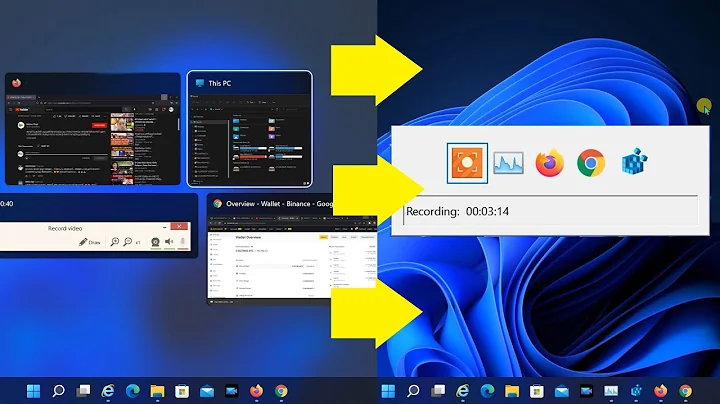Disable Alt+Tab switcher grouping by script or command
I was scared to use ccsm until I read this blog which makes it look like all that ccsm does is to edit the compiz .xml configuration files.
A search for compiz reveals:
~/.config/compiz-1
~/.config/compiz-1/compizconfig
~/.gconf/apps/compizconfig-1
~/.gconf/apps/compiz-1
~/.cache/compizconfig-1
I backed up these directories and then made then changed from "unity switcher" to "static application switcher" using ccsm as shown here
I then logged out and back in again and compared my backup to the changed system.
Here are the results of diff -r compiz_before_change/ compiz_after_relogin/
CHANGED:
- Binary file
~/.cache/compizconfig-1/place.pb -
~/.gconf/apps/compiz-1/general/screen0/options/%gconf.xml5c5 < <entry name="active_plugins" mtime="1354022954" type="list" ltype="string"> --- > <entry name="active_plugins" mtime="1354023761" type="list" ltype="string"> 70a71,73 > </li> > <li type="string"> > <stringvalue>staticswitcher</stringvalue> -
~/.gconf/apps/compiz-1/plugins/unityshell/screen0/options/%gconf.xml
2a3,5 > <entry name="alt_tab_forward_all" mtime="1354023761" type="string"> > <stringvalue>Disabled</stringvalue> > </entry>
NEW:
~/.compiz-1/session: 108caf9cb18e534392135401026619047100000017270046
These differences don't look big enough to me since I can't see anywhere that shows the keybindings which were changed, only the one which was disabled, so maybe compiz is a real pain and the change is in the binary file :-( Let's hope not!
I think if you expanded the backup and comparison, perhaps to the entire /home/ folder you would be able to find out which files contain the changes you want to make and then all you have to do is copy them from machine to machine.
Aren't human readable config files just awesome! :-D If compiz saves the settings in the binary file the coders who did that need a very stern talking to. >:-|
Good Luck.
P.S. In case your wondering, I actually made another backup of the same files after I had logged back in and then compared the two backups. It seemed quicker to me but then my brain does funny things sometimes ;-)
Related videos on Youtube
Sudheesh
Updated on September 18, 2022Comments
-
Sudheesh over 1 year
#include <stdio.h> main() { int i, n=1; for(i=0;i<n;i++) { fork(); printf("Hello!"); } }I am confused if I put n=1, it prints Hello 2 times.
- If n=2, it prints Hello 8 times
- If n=3, it prints Hello 24 times..
- and so on..
-
MestreLion over 11 yearsIs replacing unity's alt+tab the only way to disable grouping?
-
mmatt over 11 yearsI was like you and so frustrated by all this time I'm loosing to search for the good window in the application switcher ! A little resarch brought to this page : askubuntu.com/a/68171/123882 And I can not thank this guy enough !
-
SLaks about 10 yearsYes; it just copies all of the process' memory
-
 Some programmer dude about 10 yearsIt depends on the operating system. Fortunately the most popular POSIX systems have their source available for you to read exactly what happens when doing
Some programmer dude about 10 yearsIt depends on the operating system. Fortunately the most popular POSIX systems have their source available for you to read exactly what happens when doingfork. -
Sudheesh about 10 yearsIs their is any standard formula to know how fork() makes near-perfect copy of the current process? @Joachim
-
Filipe Gonçalves about 10 years@Sudheesh we can read, you don't have to repeat yourself :)
-
 Some programmer dude about 10 yearsThe only answer to that is: No, there is no "standard formula".
Some programmer dude about 10 yearsThe only answer to that is: No, there is no "standard formula". -
Useless about 10 yearsAlthough I suspect the question is really "Is there a formula to predict how many times Hello will be printed"
-
 Some programmer dude about 10 yearsIf it's like Useless proposes, then you have to remember that
Some programmer dude about 10 yearsIf it's like Useless proposes, then you have to remember thatforkcreates a new copy of the process that starts running with the statement after theforkcall. And as your process have a loop, after the first fork both processes will continue that loop, including then forking new processes. -
Jens about 10 yearsAnd you should ask what happens when the
SIGCHLDis posted in the parent and when fully or line buffered streams are flushed... -
EOF about 10 yearsAre you sure the number of
Hello's isn't 2, 6 and 14? -
Sudheesh about 10 years@EOF I am damn sure!! the number of Hello is 2, 8 and 24
-
EOF about 10 years@Sudheesh Wow, this is the weirdest thing: I made a test program using
puts()instead ofprintf(), and got 2, 6 and 14 messages. A bit of testing revealed that the newline changes the number of messages printed. Test it by adding \n to the end of your printf, like so:printf("Helo!\n");. What the??? -
 Zanna almost 7 years
Zanna almost 7 years
-
Filipe Gonçalves about 10 yearsI would cast
getpid()tointor evenlong(and in that case changeprintfformat specifier) in the call toprintfjust to make sure that no undefined behaviour arises. Ifpid_thappens to be wider or narrower thanint, this code will break -
Jens about 10 yearsmain with default int? Ugh!
-
slim about 10 yearsBoth of you: don't confuse the noob. This is enough to demonstrate the principle.
-
Sudheesh about 10 yearsIf fork() returns a negative value, the creation of a child process was unsuccessful. fork() returns a zero to the newly created child process. fork() returns a positive value, the process ID of the child process, to the parent. The returned process ID is of type pid_t defined in sys/types.h. Normally, the process ID is an integer. Moreover, a process can use function getpid() to retrieve the process ID assigned to this process.
-
Sudheesh about 10 years<pre><code>#include <stdio.h> #include <string.h> #include <sys/types.h> #define MAX_COUNT 200 #define BUF_SIZE 100 void main(void) { pid_t pid; int i; char buf[BUF_SIZE]; fork(); pid = getpid(); for (i = 1; i <= MAX_COUNT; i++) { sprintf(buf, "This line is from pid %d, value = %d\n", pid, i); write(1, buf, strlen(buf)); } }</pre></code>




